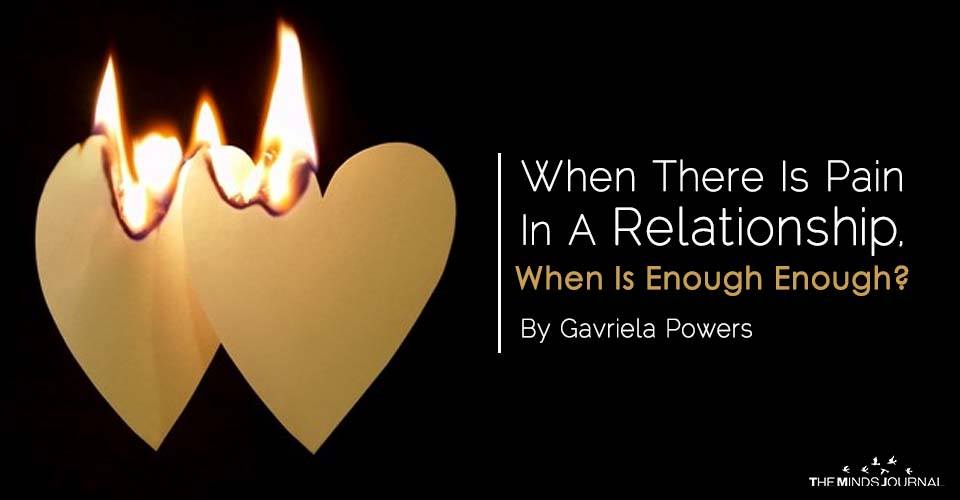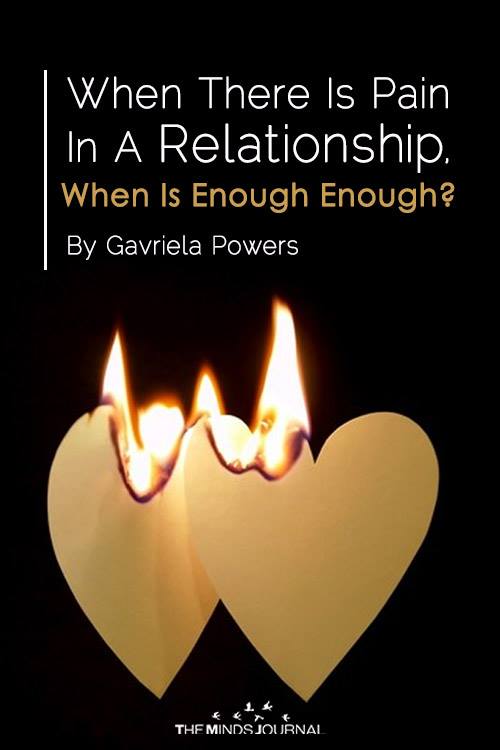Dear Advocates:
Pain is something that we have all experienced in our relationships before; whether it was the pain of someone else hurting us, or the pain of knowing that we hurt someone – pain is no stranger to any of us when it comes to love.
The true question is, how do I know when enough is enough? If love’s main characteristics are to endure pain, carry the weaknesses of others, forgive freely, and not take into account any of the wrongs done to it, how can we know when enough pain is enough pain? When are we called to endure, and when are we called to throw in the towel?
This is a question I struggled with for 24 years as I suffered abuse from a narcissist very close to me. I’m 29 now, so it hasn’t been that long since I learned this principle, nonetheless, it’s a powerful principle indeed.
When the pain you’re going through causes you to act against your own morals, it’s time to throw in the towel. Any relationship that repeatedly pushes you into a corner and causes you to act against your own moral convictions is a relationship that will lead you only to death.
Pain is not always a bad thing. Giving birth is painful, but necessary to produce life. Love isn’t designed to make you “feel good” all the time, but designed to refine and perfect you. Healthy relationships see this principle coming to life every single day: the love that is shared in a healthy relationship is a love that will be painful, but also producing abundant fruit.
Pain that causes you to remain stagnant, facing the same problems over and over again, causes you to lose hope and become overwhelmed is more than likely a pain that is coming from a source of toxicity that hasn’t been addressed.
When I was being abused, I hurt for myself. I woke up every morning dreading looking at myself in the mirror, feeling sorry for myself that I didn’t have a better life, and literally loathing myself to the point of not even caring about the abuse anymore.
When I stopped hurting for myself and began hurting more for my abuser, I realized an important love principle: true love hurts more for others than for self.
This realization was part of the catalyst that was used to break me away from my abuser; I didn’t need to feel sorry for myself, loathe myself, or hurt for myself. I needed to take that pain and do something productive with it, because that is what love does.
So, the bottom line is this: pain that causes fruit to grow is good pain that you need to make room to endure in your relationships. Pain that keeps you stagnant is bad pain that needs to be eliminated in your relationships. There is one simple key to understanding the difference between good pain and bad pain in any situation or relationship: your perspective.
All it took was a perspective change for me to climb out of that abusive hole, one day at a time. I realized I couldn’t hurt for myself and my abuser at the same time; I had to put myself on the back-burner in order to gain clarity on how to deal with this toxic relationship. This was my first step into acting in true love, but it wouldn’t be my last, or my most painful.
Take the time to assess the kind of pain you’re enduring in your relationships. Sit down and write out the fruit that is being caused by that pain – and if you can’t think of any, it’s time to make a change in your perspective. Below are a few examples of the differences between good and bad pain:
Bad Pain:
- Causes depression.
- Causes paranoid thoughts.
- Causes self-hatred.
- Causes confusion.
- Causes anxiety and stress.
- Causes a loss of perspective.
- Causes a lack of spiritual and emotional growth.
- Hinders any positive emotions.
Good Pain:
- Invokes deep thought.
- Challenges you to change yourself.
- Motivates you to become a better person.
- Causes understanding.
- Causes clarity in perspective.
- Inspires for the future.
- Challenges you to face your fears.
– Gavi, Your Advocate for Healthy Relationships









Leave a Reply
You must be logged in to post a comment.